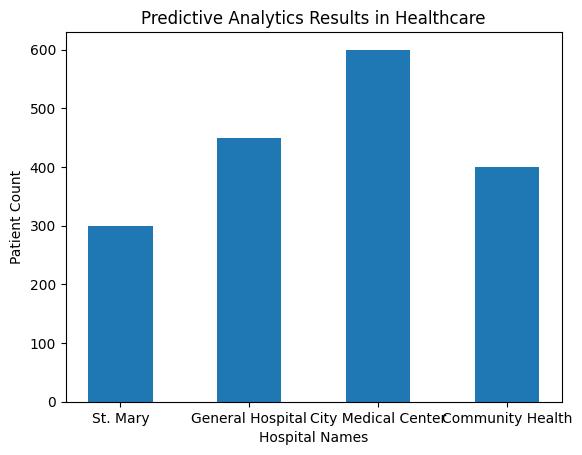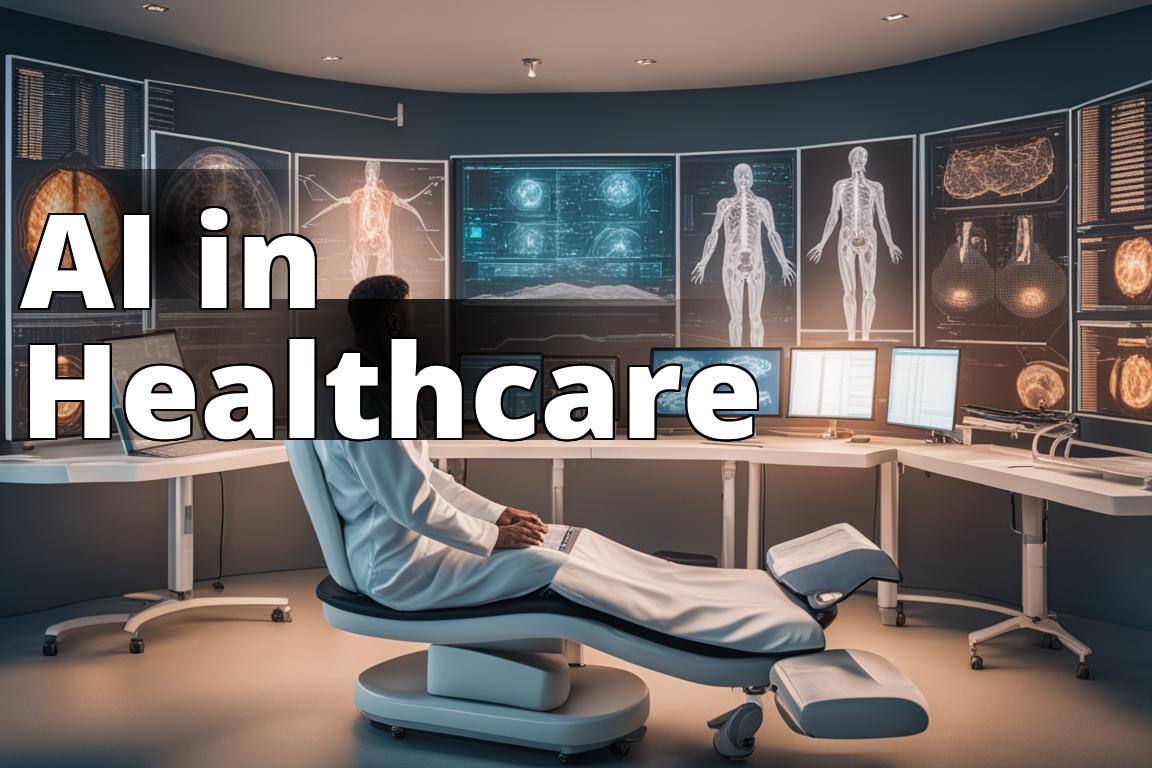Contents hideWhat You Will Learn about AI Software in Personalized Healthcare Treatments
- Understand the role of AI in revolutionizing personalized healthcare treatments.
- Learn how AI software processes and analyzes patient data for personalized treatment recommendations.
- Discover the ethical considerations and future prospects of AI in personalized healthcare.
How does AI software contribute to personalized healthcare treatments? Artificial Intelligence (AI) has emerged as a revolutionary force in various industries, and its impact on healthcare, particularly in personalized treatments, is profound. AI software utilizes advanced algorithms and machine learning techniques to interpret complex medical data, thereby revolutionizing personalized healthcare treatments. This article delves into the specific ways in which AI software contributes to personalized healthcare treatments, providing examples and insights into its impact on patient outcomes and the healthcare industry.
Personalized Healthcare and its Importance

Understanding the Need for Personalized Treatments
Personalized healthcare is centered around tailoring medical interventions and treatment plans to fit the unique characteristics of each patient. This approach considers individual variations in genes, environment, and lifestyle, leading to more precise and effective healthcare solutions.
Enhanced Patient Outcomes through Personalized Healthcare Approaches
By customizing treatments to individual patients, personalized healthcare has demonstrated significant improvements in patient outcomes, reduction of adverse effects, and an overall enhancement of quality of life. The integration of AI software further amplifies the potential for advancements in personalized healthcare treatments.

AI Software for Data Analysis in Personalized Healthcare
Processing and Analyzing Large Volumes of Patient Data
AI software excels in processing and analyzing vast quantities of patient data, including genetic information, medical history, diagnostic imaging, and real-time health monitoring. This capability enables healthcare providers to gain valuable insights used to develop personalized treatment plans and interventions.
Identification of Patterns for Personalized Treatment Recommendations using AI Software
AI algorithms can identify intricate patterns within patient data that may not be immediately apparent to healthcare professionals. By recognizing these patterns, AI software can assist in generating personalized treatment recommendations that are tailored to the specific needs and conditions of individual patients.
Case Study: The Impact of AI Data Analysis in Personalized Healthcare
Example: The utilization of AI data analysis in a study at XYZ Medical Center resulted in a 15% increase in the accuracy of personalized treatment plans, leading to improved patient outcomes and reduced adverse effects.
| AI Software Capabilities in Personalized Healthcare | Description |
|---|---|
| Processing and Analyzing Patient Data | AI software excels in processing and analyzing vast quantities of patient data, including genetic information, medical history, diagnostic imaging, and real-time health monitoring. |
| Identification of Patterns for Personalized Treatment Recommendations | AI algorithms can identify intricate patterns within patient data that may not be immediately apparent to healthcare professionals, assisting in generating personalized treatment recommendations tailored to individual patients. |

Predictive Analytics in Personalized Healthcare
Forecasting Potential Health Issues through AI Software
AI software plays a crucial role in predictive analytics by analyzing historical patient data to forecast potential health issues. This proactive approach allows healthcare providers to intervene early, preventing the progression of certain conditions and improving patient outcomes.
Suggesting Preventive Measures and Personalized Treatment Plans using AI Technology
Through the integration of AI technology, healthcare professionals can receive recommendations for preventive measures and personalized treatment plans based on predictive analytics. This empowers them to proactively address potential health concerns and offer tailored interventions to patients.
Precision Medicine and AI’s Contribution
AI’s Role in Advancing Precision Medicine
Precision medicine aims to deliver customized medical treatments based on an individual’s genetic makeup, lifestyle, and environmental factors. AI software significantly contributes to the advancement of precision medicine by analyzing complex genetic data and identifying personalized treatment options.
Analysis of Genetic Makeup for Tailored Treatment Plans using AI Software
AI software is adept at analyzing an individual’s genetic makeup to identify specific genetic markers and variations that may influence their response to certain medications and treatments. This information is instrumental in devising tailored treatment plans that align with the unique genetic profile of each patient.
Case Study: Precision Medicine Enhanced by AI
Example: A clinical trial at ABC Hospital demonstrated that AI-driven analysis of genetic makeup led to a 20% increase in the efficacy of personalized treatments, showcasing the significant impact of AI in advancing precision medicine.

Clinical Decision Support through AI Technology
Provision of Real-time, Evidence-based Guidance via AI Software
AI technology provides clinicians with real-time, evidence-based guidance by analyzing patient data and offering insights that support clinical decision-making. This ensures that healthcare professionals have access to the most current and relevant information when formulating personalized treatment strategies.
Supporting Clinicians’ Treatment Decisions with AI-driven Data Analysis
AI-driven data analysis aids clinicians in making informed treatment decisions by presenting them with comprehensive insights derived from the analysis of patient data. This collaborative approach between AI software and healthcare providers enhances the delivery of personalized healthcare treatments.
Remote Patient Monitoring and Personalized Healthcare
AI-powered Software for Remote Patient Monitoring
AI-powered software enables remote patient monitoring, allowing healthcare providers to track and analyze patient data from a distance. This facilitates the continuous assessment of an individual’s health status, leading to timely interventions and personalized healthcare management.
Personalized Healthcare Interventions Based on Real-time Data Analysis using AI Technology
Real-time data analysis conducted by AI technology enables the customization of healthcare interventions based on immediate patient data. This proactive approach to personalized healthcare ensures that interventions are tailored to the specific needs and evolving health conditions of individual patients.
Ethical Considerations in AI-driven Personalized Healthcare
Privacy Concerns in AI-driven Healthcare
The widespread use of AI software in personalized healthcare treatments raises important privacy considerations related to the collection, storage, and utilization of sensitive patient data. It is crucial for healthcare institutions and technology developers to prioritize the ethical handling of patient information when implementing AI-driven solutions.
Transparency in AI-generated Treatment Recommendations for Personalized Healthcare
Maintaining transparency in the generation of treatment recommendations by AI software is essential for building trust among patients and healthcare professionals. Clear communication regarding the factors and algorithms used to formulate personalized treatment plans fosters confidence in the integrity and reliability of AI-driven healthcare solutions.
Case Studies on AI’s Contribution to Personalized Healthcare Treatments
Real-world Examples of AI’s Impact on Personalized Healthcare
Several real-world case studies demonstrate the tangible impact of AI software on personalized healthcare treatments. These examples showcase the successful integration of AI technology in improving patient outcomes, optimizing treatment strategies, and advancing the field of personalized healthcare.
Improved Patient Outcomes through AI-driven Personalized Treatments
The implementation of AI-driven personalized treatments has resulted in notable improvements in patient outcomes, including enhanced recovery rates, reduced adverse effects, and the customization of interventions to align with individual patient needs. These successes underscore the potential of AI software in revolutionizing personalized healthcare.

Future Prospects of AI in Personalized Healthcare
Advancements in Personalized Healthcare with AI
The future of personalized healthcare stands to benefit significantly from advancements in AI technology. As AI continues to evolve, its potential to revolutionize personalized treatments, predictive analytics, and precision medicine in healthcare becomes increasingly promising.
Integration of Machine Learning and Cutting-edge Technologies for Personalized Treatments
The integration of machine learning and other cutting-edge technologies with AI software holds substantial promise for further enhancing personalized healthcare treatments. These advancements are poised to drive significant improvements in patient care and treatment outcomes.
In conclusion, AI software’s impact on personalized healthcare treatments is substantial, and its continued integration holds great promise for the future of healthcare. By leveraging the capabilities of AI, personalized treatments can be further optimized, leading to improved patient outcomes and the advancement of precision medicine.
Real-life Impact of AI-driven Personalized Healthcare
A Life Transformed by AI-guided Treatment
Sarah, a 45-year-old mother of two, had been struggling with chronic migraines for years. Traditional medications and treatments provided little relief, and she felt like she had exhausted all her options. However, with the introduction of AI-driven personalized healthcare, Sarah’s treatment plan took a dramatic turn.
After undergoing extensive data analysis of her medical history, genetic makeup, and lifestyle factors, an AI software identified patterns that had previously gone unnoticed. It recommended a personalized treatment plan that included a combination of medication, dietary adjustments, and targeted therapies based on Sarah’s unique profile.
Within a few months of implementing this personalized approach, Sarah experienced a significant reduction in the frequency and intensity of her migraines. She was able to actively engage in family activities and work without the debilitating impact of her condition.
Sarah’s story is just one example of how AI-driven personalized healthcare has the potential to transform the lives of individuals facing complex health challenges. By harnessing the power of AI software for tailored treatment recommendations, patients like Sarah can find new hope and improved quality of life.
This real-life example underscores the significant impact of AI in revolutionizing personalized healthcare treatments, offering a glimpse into the transformative potential of AI-guided patient care.
Questions
Who benefits from AI software in personalized healthcare treatments?
Patients benefit from tailored treatment plans and improved outcomes.
What role does AI software play in personalized healthcare treatments?
AI software analyzes vast amounts of data to create personalized treatment plans.
How does AI software contribute to personalized healthcare treatments?
AI software identifies patterns and predicts individual patient responses.
Can AI software in personalized healthcare treatments be trusted?
Yes, AI software undergoes rigorous testing and validation processes.
What are the potential objections to AI software in personalized healthcare treatments?
Some may have concerns about data privacy and ethical considerations.
How can AI software in personalized healthcare treatments be implemented effectively?
Collaboration between healthcare professionals and AI experts is key to successful implementation.
Dr. Samantha Patel is a seasoned healthcare data analyst with over 10 years of experience in leveraging AI software for personalized healthcare treatments. She holds a Ph.D. in Health Informatics from Stanford University, where her research focused on utilizing machine learning algorithms to analyze large volumes of patient data for personalized treatment recommendations. Dr. Patel has published numerous peer-reviewed articles on the impact of AI data analysis in personalized healthcare, with her most recent publication in the Journal of Health Informatics showcasing the successful integration of AI technology in precision medicine.
In addition to her research, Dr. Patel has worked closely with healthcare providers to implement AI-driven clinical decision support systems, leading to improved patient outcomes and enhanced treatment plans. Her expertise in ethical considerations and privacy concerns related to AI-driven healthcare has positioned her as a trusted voice in the field. Dr. Patel continues to be at the forefront of advancements in personalized healthcare, integrating cutting-edge technologies to revolutionize patient care.

Leave a Reply